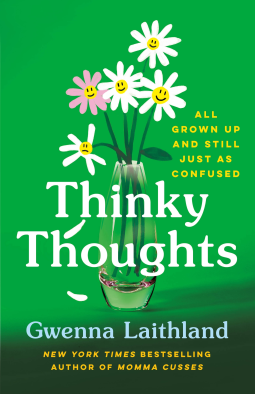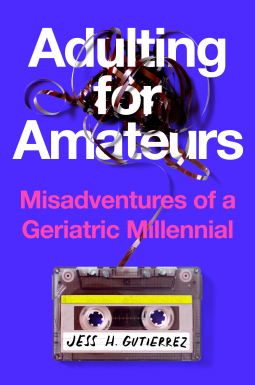I’ve read a lot of essay collections this fall. Could it be because I’ve redoubled my own essay-writing efforts?
Well, of course.
I like to read broadly in the category of my current projects. This gives me a chance to pick up on trends and get a feel for the reading experience people will expect. As a very young writer I wanted to be the author who defied convention and turned reader expectations on their head. I think that’s common at the age(s) when most of us think we’re much smarter than we actually are. Nowadays I still love a good turning-on-the-head, but I know it takes a lot to pull off and should be approached with great caution and intention. Also, most people are more willing to read a book that can be described in a way that makes sense to them.
I also read comparable books to answer specific questions about my own work. For example: what does a successful essay-collection-as-memoir look like from a non-celebrity author with ADHD who acknowledges and writes about her ADHD, but doesn’t make the whole book about ADHD or limit herself to an ADHD-curious audience? How does the publisher describe the work on the back cover of the book? What previous publishing credits does the author have?
These are very specific questions, I admit. However, like I tell my kid and my best friend at least once a month, it never hurts to ask.
So far in my season of essay collection reading I’ve received not one but two books fitting the exact profile I’m after. And since it never hurts to ask, I invite you to tell me if you have another to recommend. The more the merrier!

Thinky Thoughts: All Grown Up and Still Just as Confused
by Gwenna Laithland
My rating: ⭐️⭐️⭐️⭐️
Laithland’s essays resonated with me in a way I don’t think I’ve encountered before. Readers of my work have reached out to thank me for articulating their own nuanced experiences with ADHD in a way they didn’t know possible. I’ve cherished every one of those messages. That bit of writer’s magic is one of the handful of things I really bring to the table in this world.
This was the first time I felt another writer work that particular magic for me.
Laithland’s ruminations on what it meant to excel academically not by virtue of hard work but because the work never required her to try hard enough to fail, her complex feelings about not getting a childhood ADHD diagnosis, even her great talent as a young musician and her current career as a writer, could have been my own.
This deep point of view finds Laithland at her best. I loved the chapters and passages where I felt like I traveled side by side with her through an experience. Her vulnerability and adeptness at bringing us into her interior world creates resonance and empathy with the reader. Those who have shared similar experiences will feel seen in a deeply nourishing way. Those who have not will come away richer for having walked a mile with Laithland. She writes in a way that drew me in even though I had no prior familiarity with her or her work.
That said, the energy petered out for me in essays that leaned harder into talking to or about, rather than through, the subject at hand. Here the pace slowed and my connection to the prose felt more superficial.
All in all, though, I’m glad I read Thinky Thoughts. I appreciated Laithland’s broad approach to storytelling and her refusal to allow any one label to define her. She writes about having ADHD without making everything about ADHD. She writes about being a mother and yet refuses to shrink her identity as an individual. Most of all, she shows readers it’s okay to make mistakes (even big ones), to not have it all figured out, and to still be asking questions in the second half of your life.

Adulting for Amateurs: Misadventures of a Geriatric Millennial
by Jess H. Gutierrez
My rating: ⭐️⭐️⭐️⭐️
I didn’t know how I’d feel about this one going in. I don’t know how I feel about the word “adulting.” Scratch that. I know exactly how I feel. “Adulting” is a term I associate with with younger Millennials, and not in a good way.
However, I wear the “Geriatric Millennial” label loudly and proudly. That, along with the cassette tape on the front cover, drew me in.
I had a lot of fun reading this essay collection. Gutierrez is self-aware, vulnerable, and laugh-out-loud funny in a string of misadventure tales that live up to the name. The long list of shout-outs to various Gen X and Elder Millennial pop culture touchstones in the beginning felt a little tedious, but once we got rolling I did not want to get off the ride.
That is probably my biggest hangup with this book. I love Elder Millennial (or Oregon Trail Millennial, as I prefer) and Gen X cultural references as much as the next guy, but Gutierrez occasionally leans too hard on them for my taste. It can feel a little reach-y, like she’s demonstrating her generational cred. This is unnecessary. She has plenty of subtle opportunities to weave in-jokey references in, and her voice is plenty strong enough without falling back on devices.
But that’s a minor quibble. Adulting for Amateurs was a super fun read from a unique perspective. Like Laithland’s Thinky Thoughts, it sent me looking up the author and following her on at least one platform.
Add these to your TBR!
Both of these books come out in April 2026. I received ARCs from NetGalley, but if you’re the type to preorder books from your local bookstore, please consider it! Presales can help authors a lot. That’s me with my author hat. With my reader and book club member hat, I recommend you at least put these bad boys on your to-read list (or in my case, your big spreadsheet of books to consider picking for book club next time you host).
What I learned
Fun fact: this fall I also read R. Eric Thomas’ delightful book Congratulations, The Best Is Over! and saw him speak on the craft of writing at a local university. He talked a lot about the concept of interiority as a way to connect with readers and build empathy for your characters (or yourself) even if you have nothing in common. This insight helped me reframe some big questions and struggles with my own work. It also helped me suss out my reaction to Thinky Thoughts.
This gets at part of what I love about memoirs and essay collections: I don’t need to know who the author is before I start reading. I don’t need built-in common ground with them. It’s okay if I disagree with some of their opinions, values, or choices.
All I need is that invitation to their inner world. Solid writing, self-awareness, vulnerability, maybe a little bit of humor.
It’s easy to lose perspective on this as an author, but at the end of the day all of those things are things I can do. I can also do imposter syndrome, because that seems to be a prerequisite for becoming an author in the first place. That’s why it helps to read within my category. When I really look at what makes a book work for me as a reader, I (surprise!) don’t see any flashing signs lit up with the words “you didn’t write it.” I see characteristics I understand. An author I can relate to. I see good work done by people who are essentially colleagues in the field.
That makes the whole thing a little less intimidating.
Leave a Reply